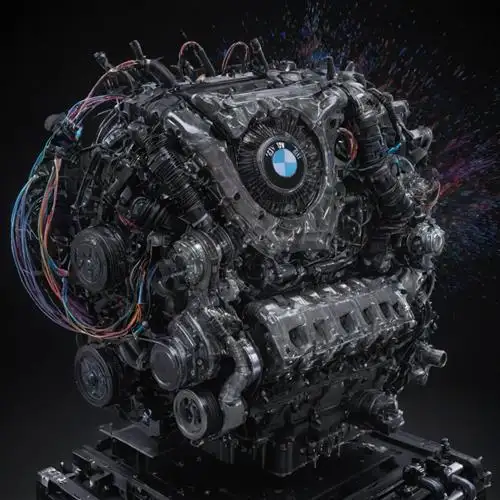
Avoiding Costly Repairs through Preventative Maintenance
Proper maintenance is crucial for the long-term health and performance of your BMW X3. By staying on top of routine service and addressing any issues promptly, you can avoid costly repairs down the line and ensure your luxury SUV continues to deliver the exceptional driving experience it's known for. At the heart of preventative maintenance is the need to address problems before they escalate, and this is especially true for the complex systems that make up a modern BMW.
One of the most important aspects of maintaining your BMW X3 is staying on top of fluid changes. Engine oil, transmission fluid, brake fluid, and coolant all play critical roles in keeping your vehicle running smoothly, and neglecting to change them at the recommended intervals can lead to significant problems. Over time, these fluids break down and become less effective, which can result in increased wear and tear on components. By being diligent about fluid changes, you're investing in the long-term health of your BMW.
Another key area of preventative maintenance is addressing issues with the braking system. The brakes on the BMW X3 are engineered to provide exceptional stopping power, but they require regular inspection and maintenance to continue functioning at their best. Worn brake pads, corroded rotors, or issues with the calipers or brake lines can all contribute to diminished braking performance and, in severe cases, complete brake failure. By staying on top of brake service and addressing any problems immediately, you can avoid the need for costly repairs and ensure your safety on the road.
Tire maintenance is another critical aspect of preventative care for the BMW X3. Proper tire inflation, regular rotation, and timely replacement of worn tires can have a significant impact on fuel efficiency, handling, and overall vehicle performance. Neglecting tire maintenance can lead to uneven wear, decreased traction, and potentially dangerous situations on the road. By staying diligent about tire care, you'll not only protect your investment but also enjoy a more comfortable and confident driving experience.
Beyond the core systems of the vehicle, it's also important to address any issues with the electrical components and on-board diagnostics. The BMW X3 is packed with advanced technology, from the infotainment system to the various sensors and control modules that govern the vehicle's operation. By staying on top of software updates, addressing any error codes or warning lights, and addressing issues with the electrical system promptly, you can avoid more serious problems that could leave you stranded or result in costly repairs.
Maintaining Optimal Engine Performance
Proper maintenance is essential for ensuring the longevity and peak performance of your BMW X3's engine. The engine is the heart of your vehicle, and neglecting its care can lead to a host of issues, from decreased fuel efficiency to costly repairs down the line. As a BMW X3 owner, understanding the importance of regular maintenance and the steps involved in keeping your engine running at its best is crucial.
One of the primary aspects of engine maintenance is oil changes. The oil in your BMW X3 plays a vital role in lubricating the engine's moving parts, reducing friction and wear. Over time, this oil can become contaminated with debris and break down, compromising its effectiveness. Adhering to the manufacturer's recommended oil change intervals is essential to ensure your engine receives the necessary lubrication and protection.
In addition to oil changes, regular inspections and replacements of other engine components are equally important. Spark plugs, for instance, should be checked and replaced as per the manufacturer's guidelines. Worn or faulty spark plugs can lead to misfiring, reduced power, and decreased fuel efficiency. Likewise, the air filter should be inspected and replaced when necessary to ensure adequate airflow to the engine, which is crucial for optimal performance.
Proper cooling system maintenance is another critical aspect of keeping your BMW X3's engine in peak condition. The coolant in your vehicle's system helps regulate the engine's temperature, preventing overheating and potential damage. Flushing and refilling the coolant as recommended by the manufacturer can help ensure the system is functioning correctly and efficiently.
Lastly, timely detection and resolution of any engine-related issues can go a long way in preserving your BMW X3's performance. Regular diagnostics and prompt attention to any warning signs, such as unusual noises or decreased power, can help prevent minor problems from escalating into more serious and costly repairs.
Preserving the Exterior and Protecting the Paint
Your BMW X3's exterior is more than just aesthetics - it's a reflection of your vehicle's overall health and value. Proper maintenance of the exterior, particularly the paint, is crucial to keeping your X3 looking its best and protecting its resale value. Regular washing, using the right cleaning products, and addressing any paint damage or imperfections are essential steps in preserving the exterior and paint quality.
Washing your BMW X3 regularly is the foundation of exterior maintenance. Use a high-quality car wash solution and microfiber cloths to gently remove dirt, debris, and contaminants that can scratch or dull the paint. Avoid using household cleaners or sponges, as they can be too abrasive and cause swirl marks or other damage. Additionally, be sure to rinse the vehicle thoroughly to prevent water spots or mineral buildup.
In addition to regular washing, applying a high-quality wax or sealant can provide an extra layer of protection for your X3's paint. These products create a barrier that helps repel dirt, water, and UV rays, which can fade and damage the finish over time. Consult with a professional detailer or refer to your owner's manual to determine the best waxing or sealant schedule for your specific vehicle.
Addressing any paint damage or imperfections, such as scratches, chips, or swirl marks, is also crucial for preserving the exterior. Small touchups can be done at home using paint pens or scratch repair kits, but more significant damage may require professional attention. Why Ignoring BMW X3 Maintenance Could Cost You as neglecting these issues can lead to further deterioration and rust, ultimately reducing the value of your vehicle.
Extending the Life of Your BMW X3's Brakes and Suspension
Proper maintenance is the key to extending the life of your BMW X3's brakes and suspension. Regular inspections and timely repairs can save you from costly replacements down the line. Brake pads, for instance, should be checked every 12,000 miles or so, and replaced when they reach 3-4 millimeters in thickness. Disregarding this can lead to damage to the rotors, which are significantly more expensive to fix.
Your X3's suspension components, such as the shocks, struts, and control arms, also require close attention. These parts absorb the impact of bumps and potholes, and over time, they can become worn, leading to a less comfortable ride and potentially unsafe handling. It's recommended to have the suspension inspected every 30,000 miles, and replace any worn parts as needed.
One of the most important steps in maintaining your BMW X3's brakes and suspension is staying on top of fluid changes. Brake fluid should be flushed every two years, as it can become contaminated and lose its effectiveness. Similarly, the suspension fluid, known as shock absorber fluid, should be changed every 50,000 miles to ensure optimal performance.
Alignment is another crucial aspect of maintaining your X3's brakes and suspension. Proper wheel alignment not only ensures even tire wear but also helps to prevent premature wear on suspension components. It's a good idea to have your alignment checked every 12,000 miles, or whenever you notice uneven tire wear or the vehicle pulling to one side.
Optimizing Fuel Efficiency through Regular Maintenance
Maintaining your BMW X3 is crucial not only for its longevity but also for optimizing its fuel efficiency. Regular maintenance ensures that your vehicle is running at peak performance, reducing fuel consumption and saving you money in the long run. One of the key areas to focus on is the engine, which is responsible for converting fuel into the power that propels your X3 down the road.
Proper engine maintenance begins with timely oil changes. The engine oil in your BMW X3 plays a vital role in reducing friction and wear, ultimately improving fuel efficiency. By changing the oil and filter at the recommended intervals, you can ensure that the engine is running smoothly and efficiently, reducing the amount of fuel required to power your vehicle.
Another important aspect of maintaining fuel efficiency is the regular replacement of air filters. The air filter in your BMW X3 is responsible for removing impurities from the air entering the engine, allowing for optimal air-fuel mixture and combustion. A clogged or dirty air filter can restrict airflow, leading to a less efficient engine and decreased fuel economy. Replacing the air filter as per the manufacturer's recommendations can make a noticeable difference in your X3's fuel consumption.
Tire maintenance is also crucial for optimizing fuel efficiency. Properly inflated tires with the correct air pressure can significantly reduce rolling resistance, which is a major contributor to fuel consumption. Regularly checking and adjusting the tire pressure according to the recommended specifications can help your BMW X3 achieve better fuel efficiency.
In addition to these maintenance tasks, it's important to address any issues with the engine's spark plugs, fuel system, and emissions control components. Faulty or worn-out parts can lead to increased fuel consumption and decreased engine performance. Promptly addressing these issues through professional servicing can help restore your BMW X3's fuel efficiency and overall performance.
















